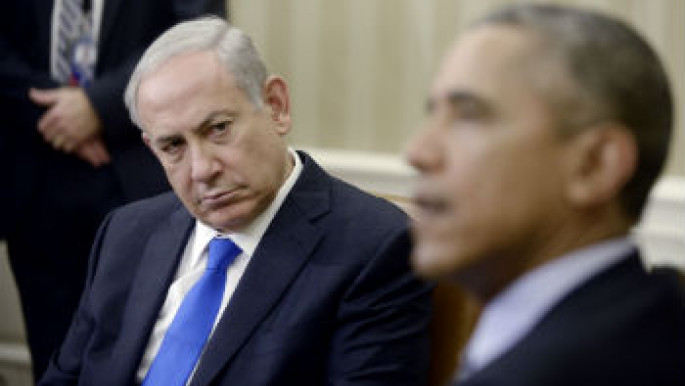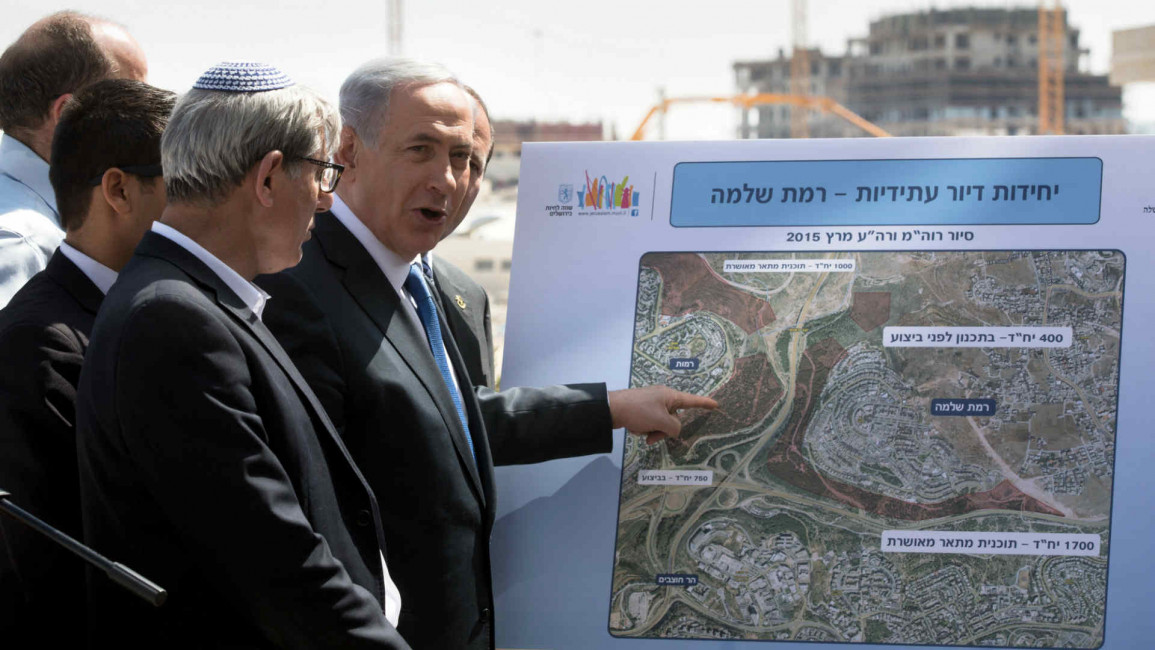Ex-US officials: Netanyahu wanted to offer Palestinians land in Sinai in exchange for West Bank
The PM allegedly raised this issue several times with Obama and then-US Secretary of State John Kerry, insisting that they could persuade Egyptian President Abdel Fattah al-Sisi to take part in the annexation plan, according to reports based on anonymous testimonies by former high-ranking US officials.
Netanyahu denies such reports, stating that "this story is not true".
Haaretz confirmed the officials in question had direct access to the alleged conversations.
The Obama administration believed the Palestinians would not accept such a deal, and knew that Sisi was opposed to it.
Contrary to previous claims by Israeli ministers, the officials reported that Netanyahu was not planning to establish a Palestinian state in the Sinai, but to keep land for a future Palestinian state in the West Bank, and "compensate" for annexation of West Bank land by offering up parts of the northern Sinai, which could be attached to the Gaza Strip.
Netanyahu's far-fetched plans for land-exchange however, are not dissimilar to those being drafted by the Trump administration, if recent reports prove true.
On Monday, Israeli newspaper Maariv reported that an Israeli-Palestinian peace plan, drafted by Trump's son-in-law and presidential advisor Jared Kushner, also includes land exhanges in the Sinai.
Washington however, strongly deny such reports, dissmissing them as, "a mix of ill-informed speculation and utter nonsense" and unrelated to the actual content of the peace plan.
Speaking of which, the White House stated that the plan, "will benefit Israelis and Palestinians and will be revealed when it is done and the time is right".
 |
We knew it would be a complete non-starter for the Palestinians – why would they trade agricultural lands in the West Bank, close to their largest cities, for sand dunes in Sinai? |  |
Despite links with Kushner's peace plan, the officials speaking to Haaretz contend that it was Netanyahu who first raised the concept with the US.
"It started shortly after the 2014 Gaza war," one of the officials said. "Netanyahu came to meet Obama in the fall of 2014, and his pitch was basically: 'John Kerry's peace talks fell apart a few months ago, we just had a war, and now the peace process is stuck. So I want to offer you a different kind of idea'."
Netanyahu, according to all four officials, told Obama and Kerry of his new plans, whereby Israel would annex swathes of West Bank land. "He used the term 'settlement blocs' but didn't provide a map that actually defines those blocs," one of the officials said.
Unconvinced by Bibi's grand plans, the officials dismissed them as "a waste of time", and unfeasible for a multitude of reasons.
 |
|
| "By the time Netanyahu, Kerry and Sisi met at the secret Aqaba summit [in January 2016], this idea was already off the table. No one talked about it in Aqaba." [Getty] |
"We knew it would be a complete non-starter for the Palestinians – why would they trade agricultural lands in the West Bank, close to their largest cities, for sand dunes in Sinai?" questioned one of the officials.
A second official said that "Northern Sinai is home to one of the most powerful ISIS-inspired insurgencies in the world. Why would the Palestinians agree to take responsibility for it, in return for Israel getting to keep more of its settlements? It didn’t make sense to us."
Perhaps more shocking is that the Obama administration seemed to follow up the proposed land swap plan.
The officials reported that Washington contacted Egyptian officials to ask them if they had discussed such an idea with Israel. The reply was negative. "The first time I heard Netanyahu talking about this was in late 2014," said one of the officials. "By the time Netanyahu, Kerry and Sisi met at the secret Aqaba summit [in January 2016], this idea was already off the table. No one talked about it in Aqaba."
The latest allegations come just months after Jared Kushner made a secret four-day visit to Riyadh to discuss his peace plans for the Middle East. During the meetings, it was reportedly suggested by Riyadh that the West Bank town of Abu Dis could become the Palestinian capital, in the wake of Trump's recognition of Jerusalem as the capital of Israel.
Abu Dis is a suburb of East Jerusalem, cut off to the holy city by the Israeli separation barrier, as well as the large number of Israeli settlements in the area.
In October last year, the Israeli PM pushed through legislation to expand and annexe Ma'ale Adumim, located in East Jerusalem. Ma'ale Adumim is one of the largest settlements in the occupied West Bank and its annexation would prove detrimental for the peace process and any efforts for a two-state solution.



